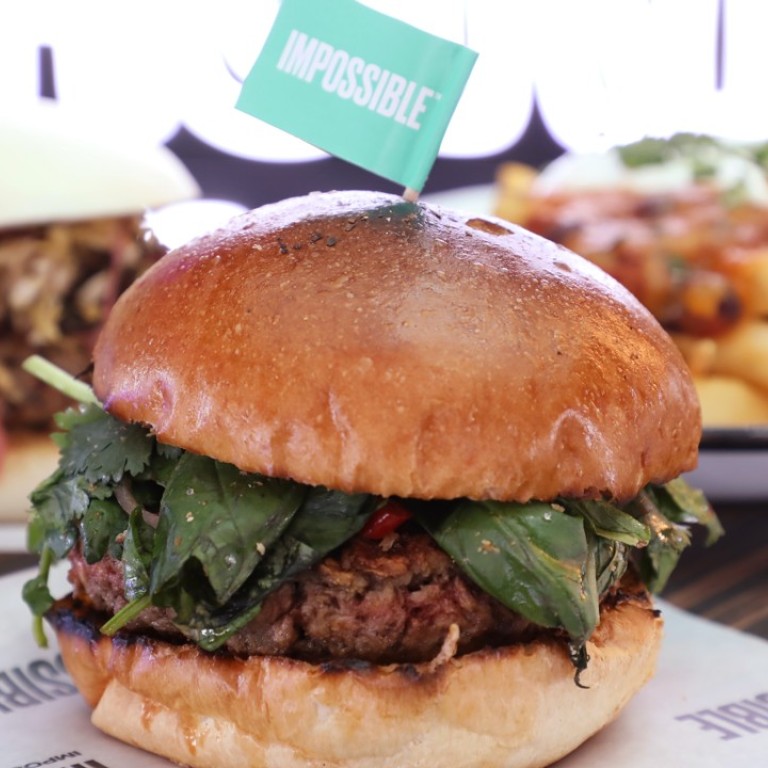
Hong Kong chefs on challenge of selling vegan Impossible Burger to city’s meat-lovers
The environmental impact of the meat industry is well known, and biochemist Patrick Brown has come up with a plant-based meat substitute that is healthy, eco-friendly and ethical. Two Hong Kong chefs prepared us four dishes
Following hot on the heels of the Hong Kong debut of Beyond Meat’s plant-based Beyond Burger, Impossible Foods has launched its vegan Impossible Burger with a flashy party at Watermark restaurant just above the Star Ferry in Central.
At the event, the media were invited to try the Impossible Burger in four dishes prepared by chefs Uwe Opocensky and May Chow which are available in their respective restaurants.
Opocensky, group executive chef of The Greater China Restaurant Company that owns Beef & Liberty, made The Impossible Thai Burger (HK$135) using the vegan patty and garnished with chilli, coriander, watercress, mint, basil, spring onion, soy mayonnaise, crispy shallots and garlic. He also used the plant-based “ground meat” in the restaurant’s Impossible chilli cheese fries (HK$62) topped with spring onions and sour cream.
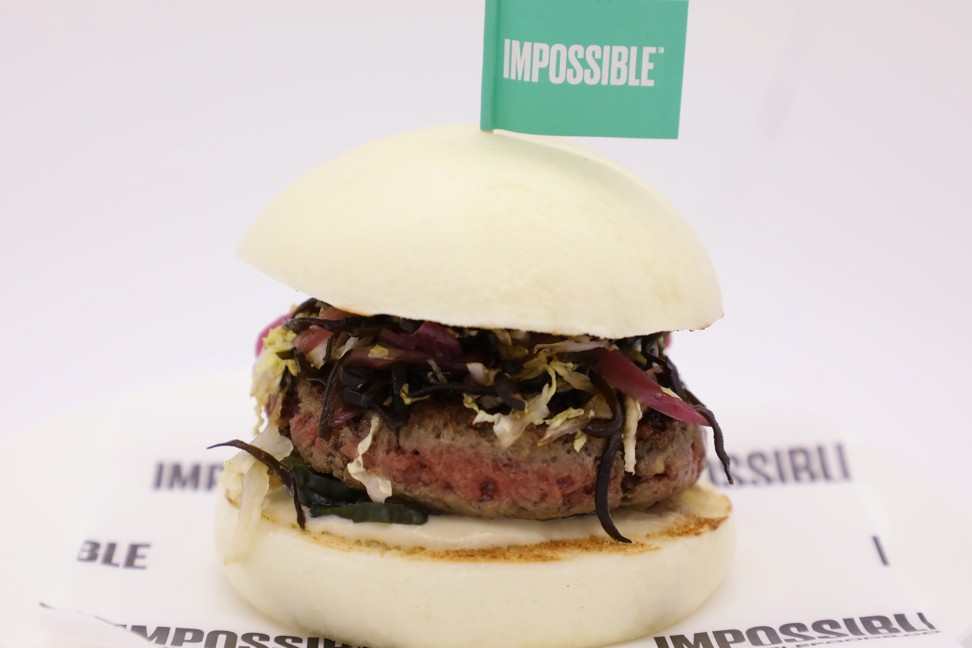
Hong Kong burger showdown: Beyond Meat’s vegan version vs Australian beef patty
Impossible Foods CEO and founder Dr Pat Brown was thrilled to have Hong Kong as the first place outside the United States to make Impossible Foods available, describing it as a strategic step.
“Hong Kong is one of the handful of what I call really international cities. People and cultures come from around the world and create something different … culinary innovation here is as good as anywhere in the world, and people love new foods in Hong Kong, and they love meat. It’s one of the cities with the highest per capita consumption of meat in the world. That’s our target consumer, there’s loads of meat eaters in Hong Kong.”
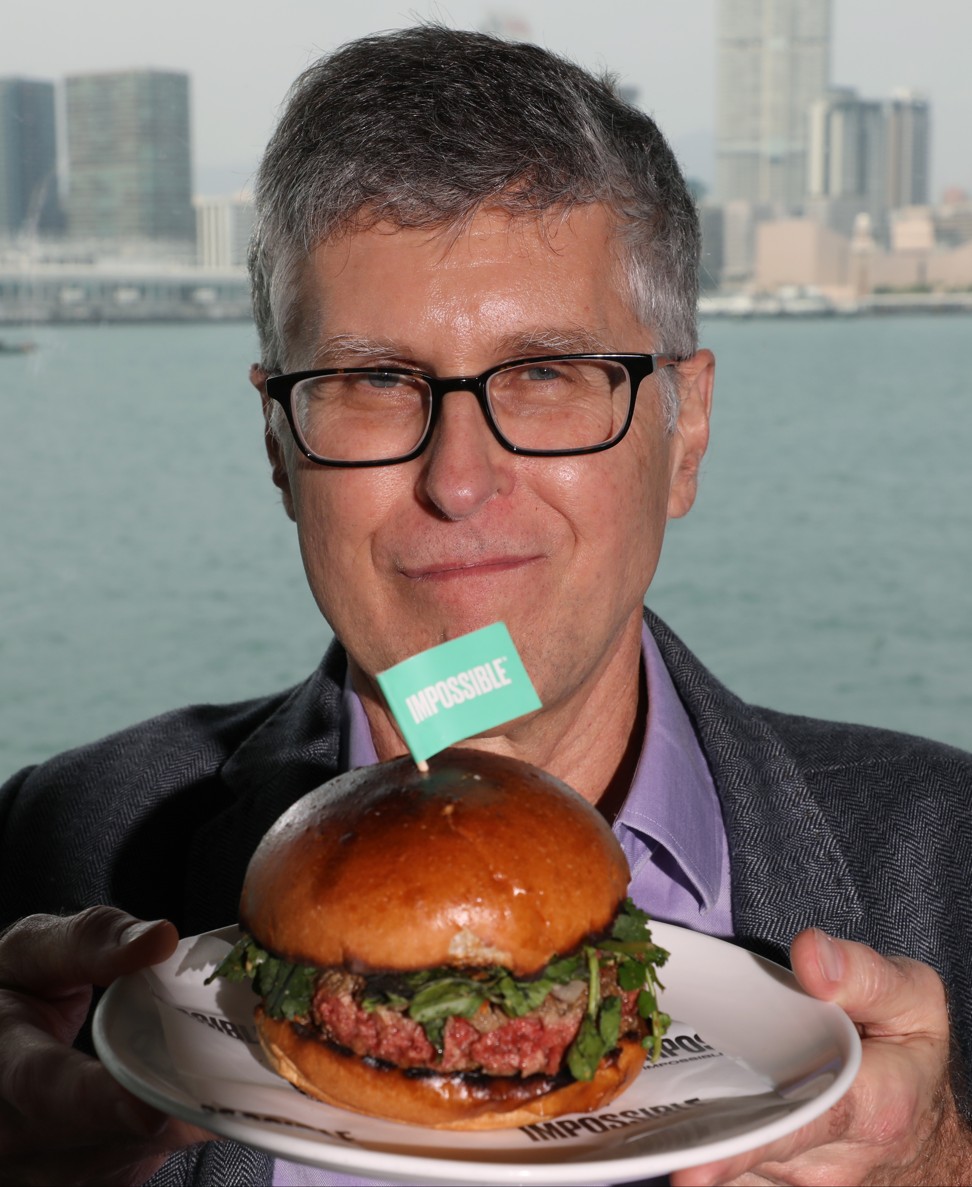
The Stanford biochemistry professor wanted to identify the world’s most urgent problem and then solve it. He found it was the production of meat, because it is unsustainable.
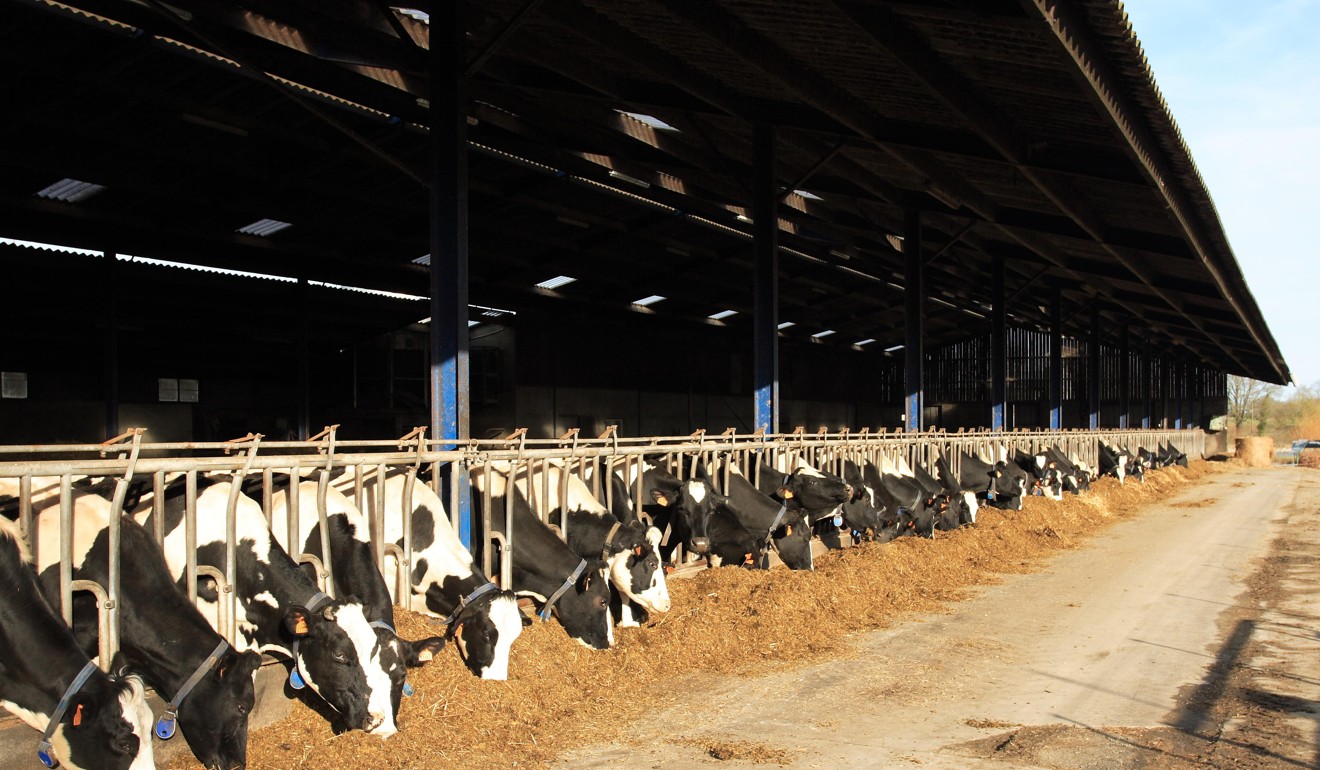
Why a Hong Kong meat-loving chef turned vegan – and the benefits he is feeling already
To tackle the problem, Brown gathered together a team of top scientists, chefs, farmers and flavour experts to analyse meat down to its molecular level to determine why it smells, handles, cooks and tastes the way it does – and find a plant-based alternative.
“The way we have been producing meat for many thousands of years today with the scale of the demand for meat has turned into an environmental catastrophe. And that meant that we needed to find a way to produce meat that satisfies what meat lovers crave, that is delicious in every way that matters to meat lovers, but to make it much more sustainably than we can do it producing animals.”
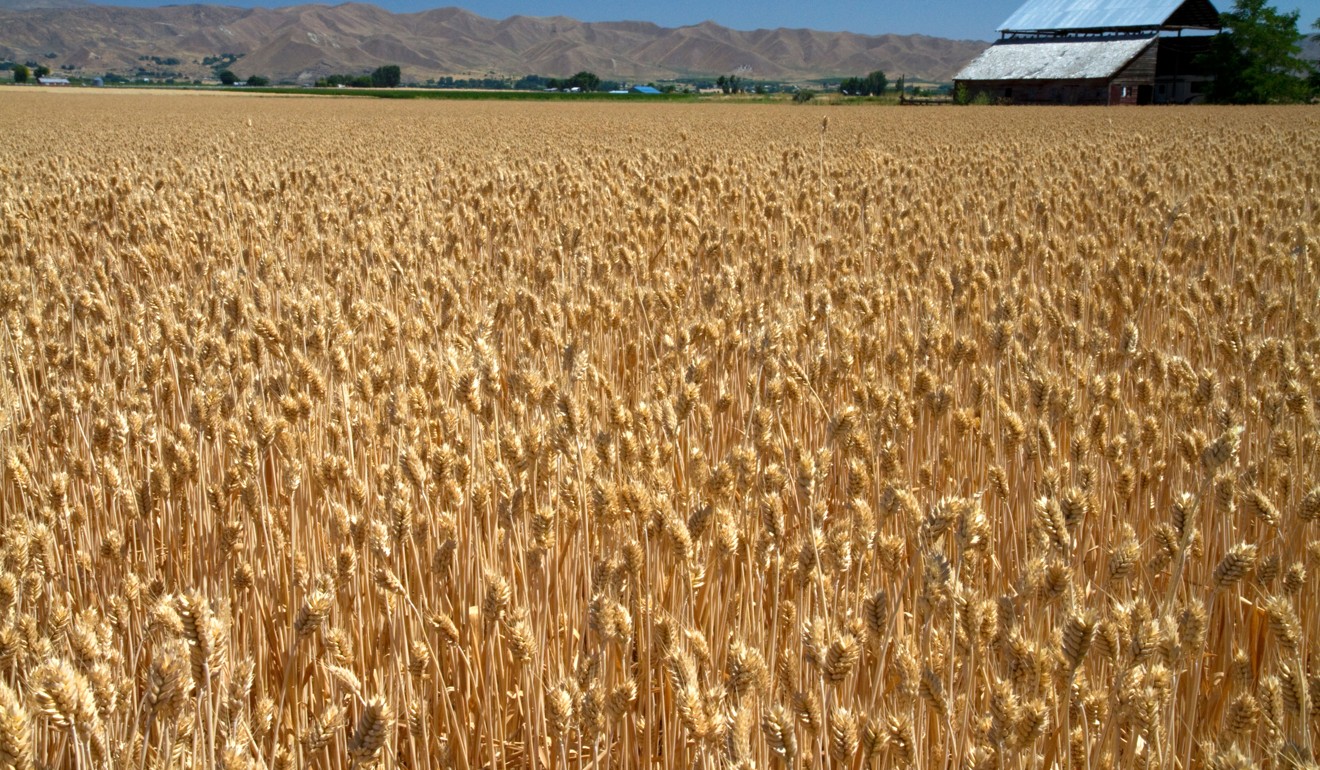
“What we discovered is that heme catalyses chemical reactions that transform simple nutrients, whether they be from plants or animals, into this explosion of flavours and aromas.”
Six top healthy food trends for 2018, from the next superfoods to a planet-friendly animal protein source
Isolated, the heme made from soy at Impossible Foods is the colour of dark blood, and tastes like soy sauce. Heme is what gives meat its colour and an Impossible Burger includes heme for flavour as well as the look of a ground meat patty. Brown says with the technology used to make their heme now patented by his company, Impossible Foods can make all kinds of meat-free substitutes, such as pork, lamb, chicken and even fish.
However, when it comes to the taste test, it was a mixed bag.
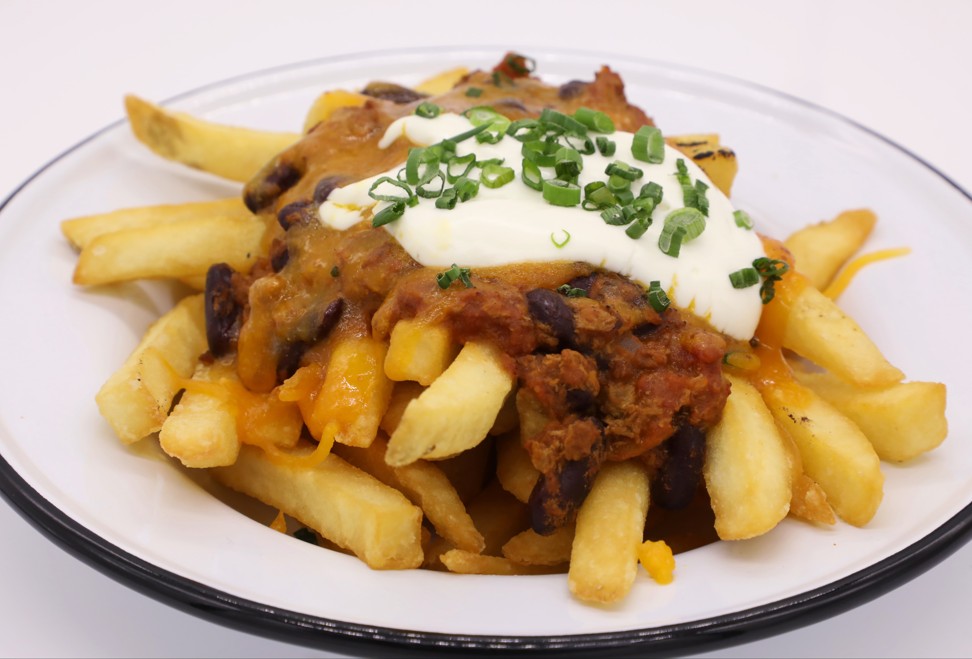
But when it came to the Impossible Thai burger, some members of the media were not convinced – the “meat” tasted more like wheat, the patty looked undercooked, and didn’t hold its shape when it was cooked.
Chow’s bao fared better thanks to the pickled vegetables, and longer grilling time for the patty.
Meet the meat-free Hong Kong parents on a vegan mission
Opocensky says the real test is getting people to eat more plant-based food on a regular basis and he believes Impossible foods is a good alternative.
“We need to change the way we eat. With Impossible Foods, I think we can get there. It’s a product I’ve known for a year and it’s evolved. They keep on fine-tuning it. For us as chefs, it’s our job to make it even more delicious and make sure people don’t think ‘I have a non-meat burger’, but ‘I’m having a burger’ regardless of what it is. If we can achieve that, we are on to a real winner. It’s not a meat replacement – it’s just another meat, another dish, another new ingredient that has never been there before.”
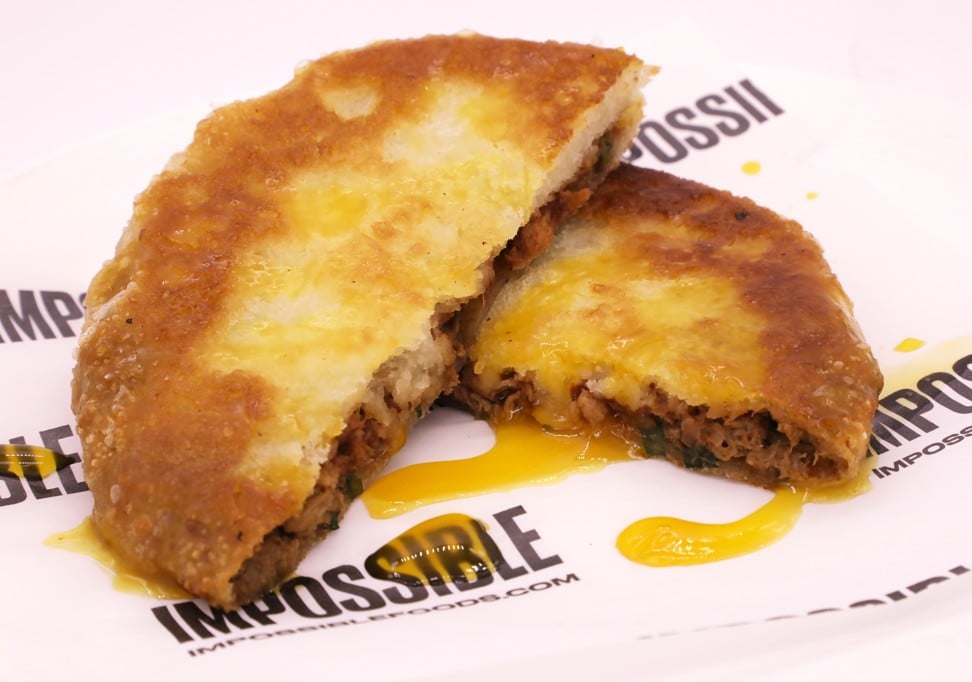
Cancer patient’s tumours shrink on vegan diet and Buddhist meditation
“That’s something even in the US you can’t do, but can explore in Asia,” she says.
Impossible Foods’ mission is to replace all animals in food production by 2035, and Brown thinks it is possible.
“It’s one of these things where, when new innovations and technologies come along, I think people underestimate how fast they will take over. But once you have something that is really doing a decisively better job of giving consumers what they want, the market can move very quickly. What we focus on above all is understanding how to make the most delicious meats in the world. We’re still working on this every day. We have all kinds of meat and I’m just convinced we’re going to do it.”

